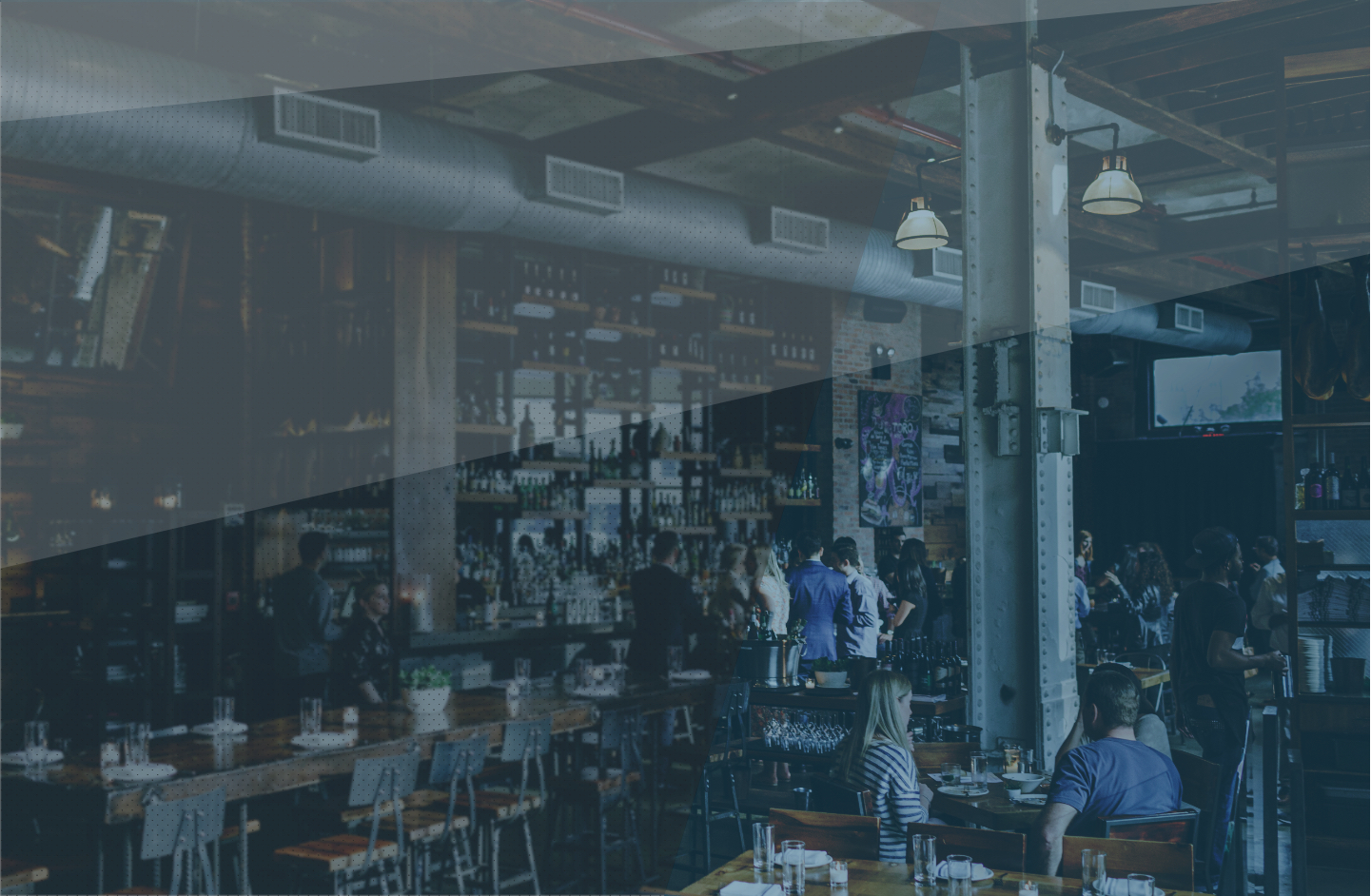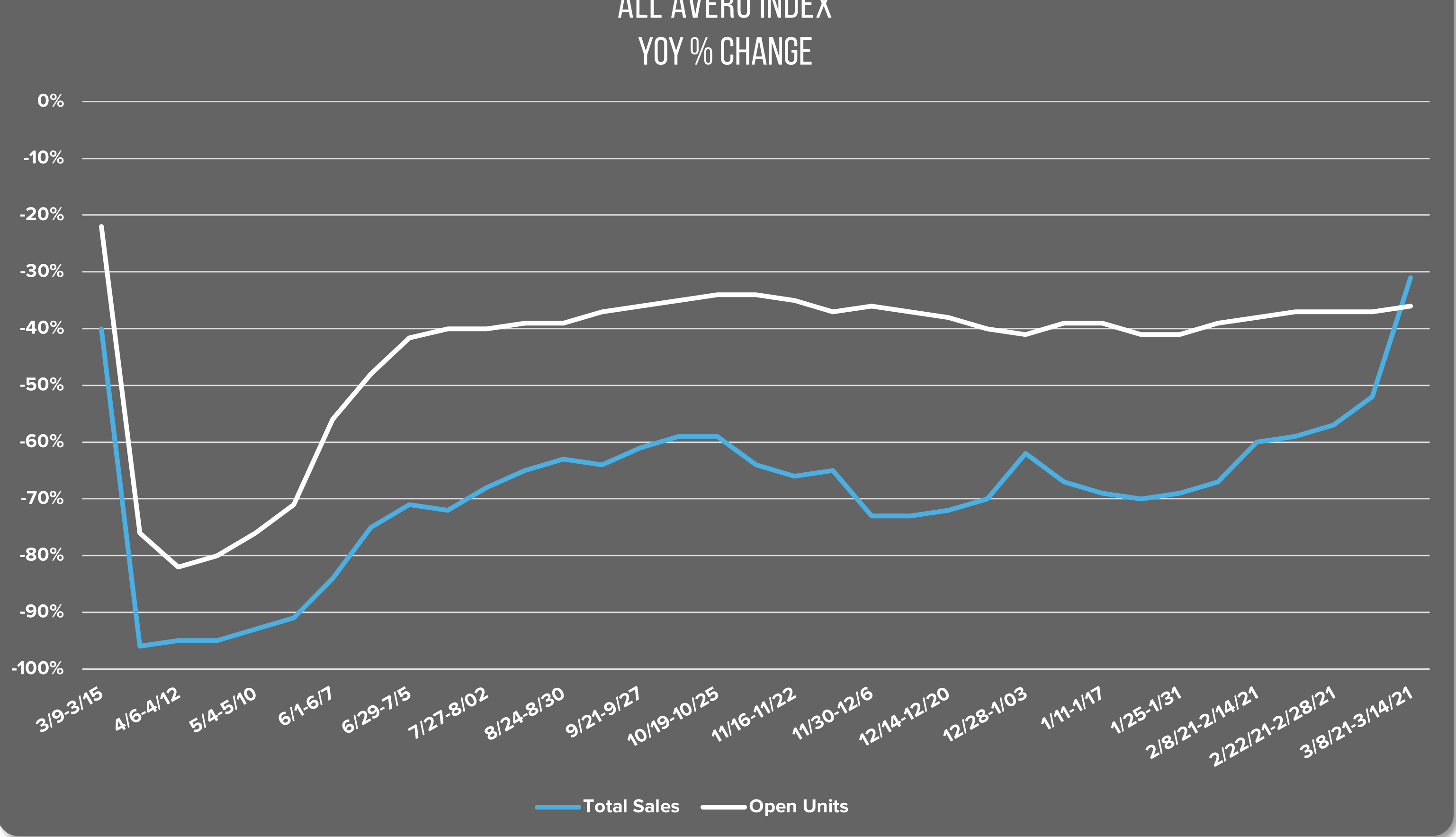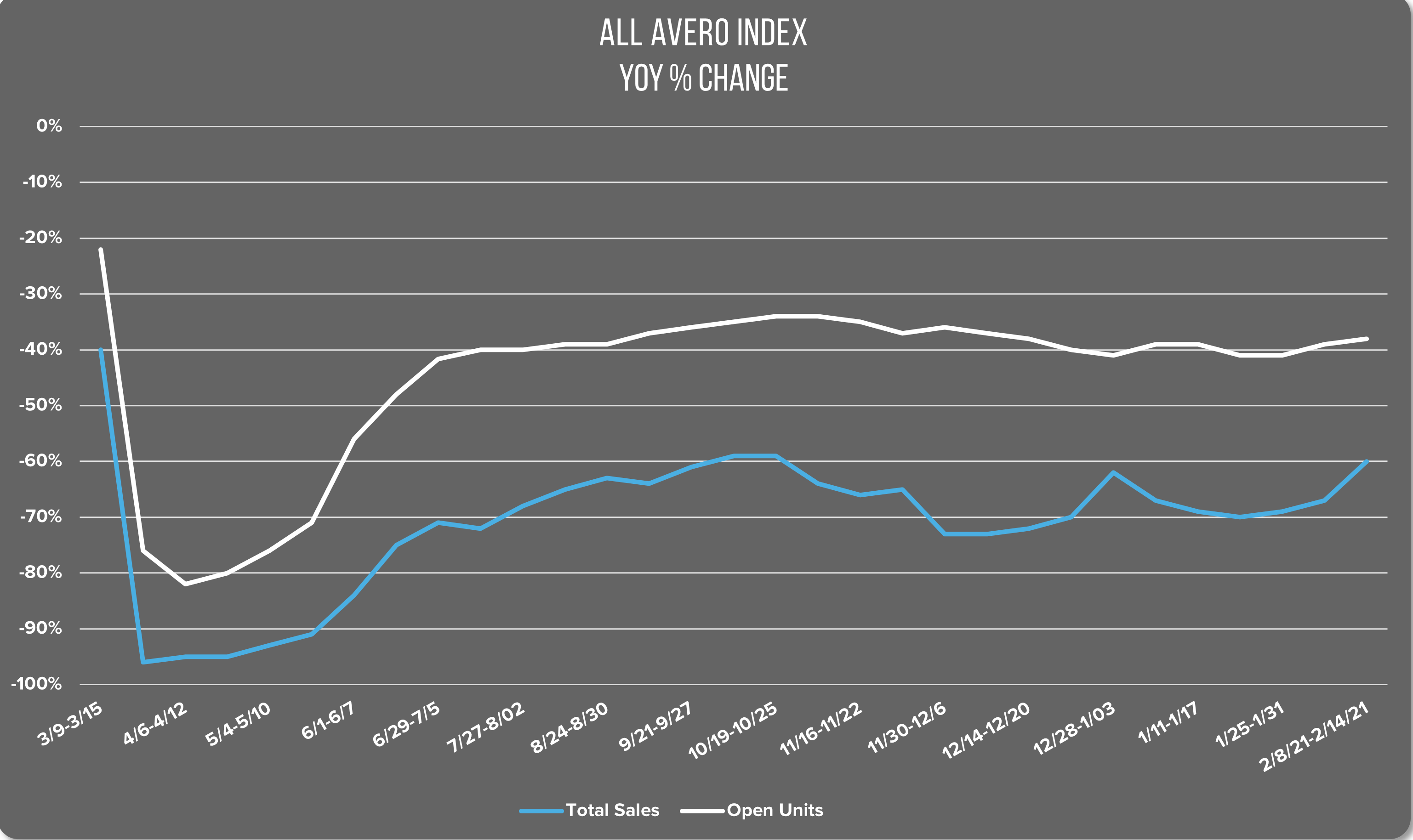Avero Index: January 2019
January’s major news headlines about the federal government shutdown and the polar vortex continue to make waves as we start to see the impact both events had on restaurant sales last month.
A polar vortex brought below freezing temperatures to most of the Midwest and Northeast this January. Chicago experienced their second coldest average temperature day on record on January 30, with a high temp of -10 and a low temp of -24. The frigid temperatures accompanied by snow and ice prompted massive city-wide shut downs across the Midwest.
Many restaurants also closed their doors in hopes of avoiding the incremental costs of staying open on what were sure to be slow sales days. Our data shows that a quarter of Avero restaurants in Chicago closed for at least one day during the polar vortex. The combination of slow customer traffic and restaurant closures due to extreme weather resulted in a significant drop in Chicago restaurant sales of 5.0 percent compared to last January.
.png)
Art Jackson, co-founder and owner of Pleasant House Bakery and Pleasant House Pub in Chicago notes that in his eight-plus years of owning a restaurant in Chicago he has never had to close his doors due to weather until this polar vortex. He said it was simply too cold to remain open with those temperatures.
Jackson also points to the federal government shut down as a cause for significant sales losses in Chicago. He has spoken to colleagues in breweries around the city that depend on federal agencies for product approval throughout the production process. Some have had to dump batches of spoiled inventory while waiting for label approval, resulting in lost revenue.
One Washington D.C. brewery, Atlas Brewery, went as far as to file a lawsuit alleging that the government shut down destroyed its business because of the amount of product lost waiting on label approval.
Breweries aside, Washington D.C. restaurants are suffering lost sales due to the government shutdown as well. Over a quarter of the 2 million full-time federal employees affected by the shutdown live in the D.C. metro area. With the 35-day freeze on paychecks for area residents, it’s not surprising that D.C. restaurant sales dropped by 5.2 percent in January.

Elsewhere in the country, January’s restaurant sales remained strong. The top performing cities from 2018 managed to hold onto their lead, as reported in our year in review Avero Index. Atlanta restaurant sales are up 6.4 percent and San Francisco saw a YOY increase of 6.9 percent. Both cities have seen spikes in traffic due to city wide initiatives increasing both tourism and business in the area.


Nationally, restaurants on the whole stayed relatively steady this month with only a 0.8 percent drop over last January.
The largest decrease in national restaurant sales and item quantity comes from the alcohol section of the menu. This fact may not come as much of a surprise to anyone familiar with the increasing popularity of dry January, a movement dedicated to avoiding alcohol for the entire month of January. The popularity of #dryJanuary has begun to trend on social media and marketing companies have tried to capitalize on it to increase spending on non-alcoholic items. Across the country wine by the glass seems to have had the largest drop in both sales and quantity sold. However, all types of alcohol consumption dropped nationwide this January.


See below for restaurant sales data in other major cities across the country including Los Angeles, Miami, NYC, and Las Vegas.









